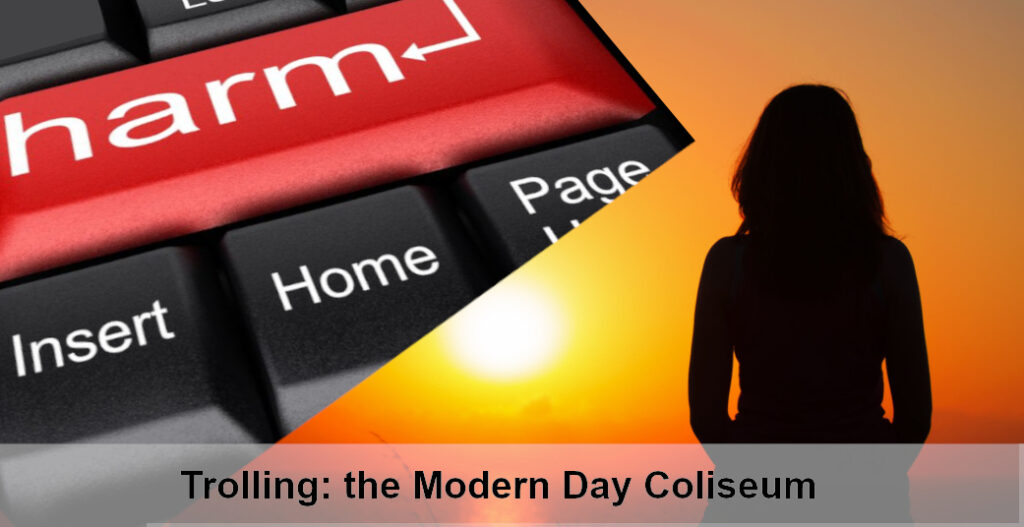
Aren’t you told you deserve to be urinated on and sexually abused every morning with your double-shot latte?
If feminist writers such as Jezebel’s Lindy West are to be believed, trolling has become a “common part” of journalism practice and a frequently overlooked workplace issue. Trolling has cemented itself as an integral part of the current Australian news media landscape, emerging as an unfortunate byproduct of the liberating impact of social media.
Although interactivity has proven a significant contributor to news popularity, an online culture has emerged where vicious and frequent trolling commentary has become routine, and “I’m going to rape you” has become a predictable default response to journalism practice.
For vile comments that would make any ordinary person question the sanity of humanity, journalists are expected to rely upon their resilience as an adequate coping strategy. Critics have argued trolling is considered a workplace inconvenience in journalism practice, rather than an unacceptable behaviour.
The ferocious nature of trolling within the Australian news media is as vile as it is widespread. Due to the vulgarity of content, trolling has permeated from a few isolated incidents to mainstream news headlines.
Trolling can be positioned along a continuum of harassment whereby offensive and malicious vocabulary is amplified in the online environment by removing the risk from social sanctions and physical assault, shielded by a mask of anonymity.
Although evident on a global scale, trolling has only recently materialised in academic data, and our understanding of its widespread impacts are still evolving.
As a researcher of online hate speech, my study echoes a worrying trend: abuse is disproportionately directed towards females.
My study examines the evolution of trolling in the Australian news media and begins to access the impacts on journalists. Trolled journalists interviewed for the study recalled their distressing experiences and the vulgar language they are subjected to on a regular basis. The recommended response strategy of ‘don’t feed the trolls’ is suggested as an inadequate band-aid solution to a problem we do not yet truly understand. Behind their professional façade, trolling affects journalists on a deeper, personal level, to the extent that some are changing their professional practice.
The women’s movement of the twentieth century leading to sexual harassment and domestic violence reform has much to teach those interested in combating trolling this century. The symbiotic relationship of both education and law help combat destructive social attitudes that are fueled by misogynistic views victims simply overact to non-vagina friendly speech.
Initial trolling views downplayed its impacts suggesting that unlike real rape, words and images on a screen cannot really hurt anyone, and were dismissed as harmless banter or satire, much like spousal abuse and workplace harassment were initially dismissed as ordinary family disputers and workplace flirting.
Along with other academics, my research illustrates the emotional and psychological distress is as real as it is concerning, and presents a serious workplace issue in Australian newsrooms. For trolling, societal recognition has been achieved, however legal cases still only sporadically appear in court.
Trolling is a broad church, ranging from bullies to amateur philosophers, from the mildly offensive to the illegal, where the line between criminality, threats, offensiveness and satire is a very fine one.
It was not until 2014, when Australian TV personality Charlotte Dawson took her own life as an alleged result of continued online abuse, that the mainstream media vilified trolling as a standalone social issue. Immense critical public discourse prompted a newfound consensus: the need for legal reform is irrefutable.
The Australian government has been criticised for its few trolling prosecutions, with trolls continuing to send hateful abusive remarks with little or no consequence.
In 2015, convicted Australian troll Zane Alchin received no jail time for his comments, “I’d rape you if you were better looking” and “you’ll be eating my cock till you puke” sentenced only to a twelve-month good behaviour bond.
Five years later, in April 2020, he was again arrested accused of allegedly trying to break into a woman’s home before sending her a text message saying, “I’m going to make you write an apology in your son’s blood”. Refused bail, Alchin is currently on remand in Silverwater’s maximum security MRRC prison.
Although sporadic examples are beginning to emerge in Australian courtrooms, a clear understanding of pathways to prosecute a troll are not universal, and repercussions often rely on the victim initiating action.
Difficulties arise when prosecuting a troll, as the identity of the faceless keyboard warriors are often unknown. Accumulating pressure is mounting on social media companies including Facebook and Twitter to be held legally accountable for the abuse that occurs on their service.
Globally, intense debate surrounding adequate trolling laws continues.
Until harsher penalties are actively enforced by authorities as a deterrent for such behaviour, trolls will continue to venture out from under the bridges they came from.
Researched & Written by: Delysha Pick
Add Your Comments and Support
Comments on this briefing can be made on this Facebook post.
The Online Hate Prevention Institute is a Registered Charity that tackles all forms of online hate. You can support our work by making a donation at https://ohpi.org.au/donate/. You can also join us on Facebook, or join our mailing list.
This article is part of our August 2020 campaign to Counter Online Trolling. We are now preparing for our September campaign to Tackle Racism & Xenophobia and welcome donations through the campaign fundraiser to increase its scope & impact. The full plan for our campaigns in 2020 can be seen here.
